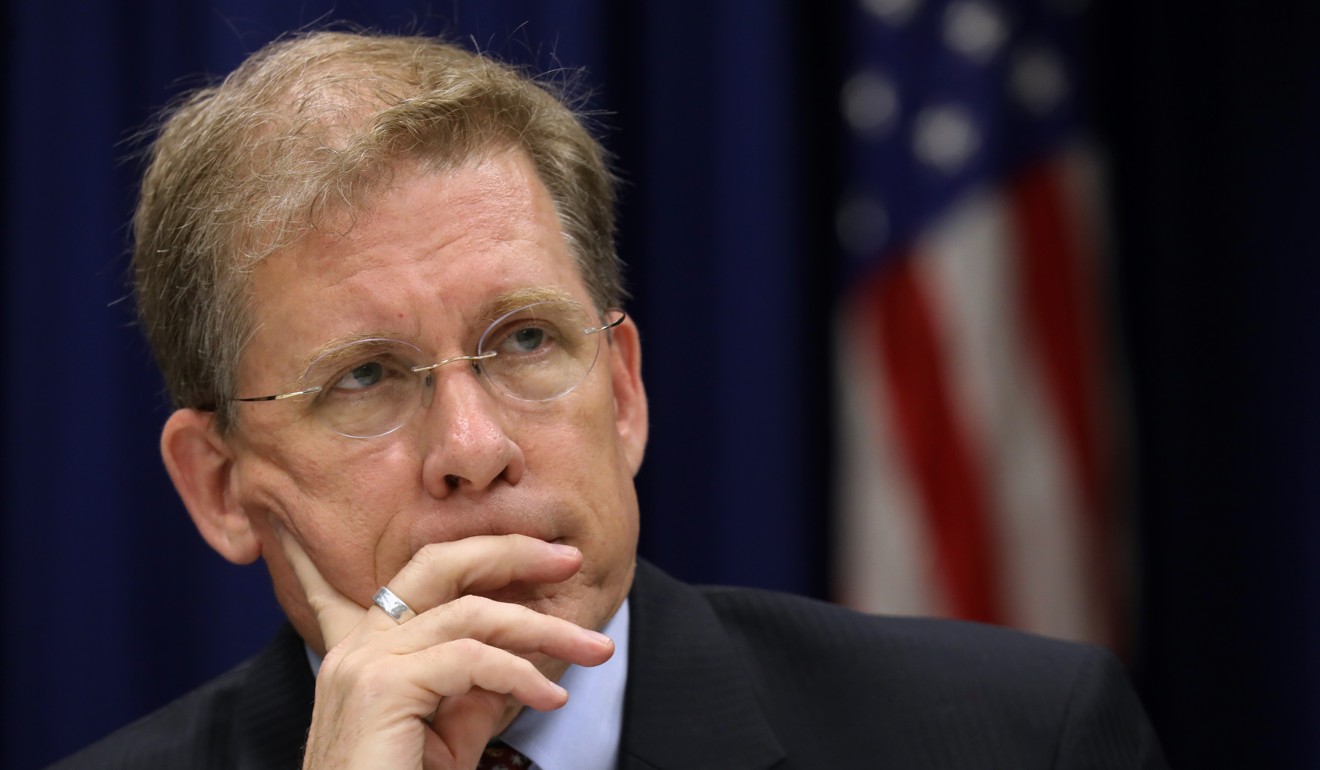
US ‘keen’ for Thailand to return to elected government, top diplomat says
- W. Patrick Murphy says democracy has served Thais well and the US is hopeful the March 24 poll will produce such results
- His comments come amid expectations civilian rule will help normalise bilateral ties, which chilled after the junta seized power in 2014

Washington is eager for junta-ruled Thailand’s polls on Sunday – its first since the 2014 coup – to herald a return to elected government, says a senior United States diplomat, amid expectations that civilian rule will allow the treaty allies to normalise bilateral relations.
W. Patrick Murphy, the Principal Deputy Assistant Secretary for East Asian and Pacific Affairs, said US ties with Thailand had endured despite facing hurdles of a “governance or economic nature”.
Thailand and the US have a bilateral defence treaty, making it and the Philippines the US’ only non-NATO treaty allies in Southeast Asia.
Murphy did not make specific reference to any incidents, but soon after junta leader and current Prime Minister Prayuth Chan-Ocha seized power in May 2014, the US took steps to signal its displeasure by reducing some aspects of security cooperation.
“We are very keen to see Thailand return to elected government,” said Murphy, who briefed journalists in the region on Friday after official visits to Bangkok and Jakarta.
“Democracy has served Thailand and the Thai people well in the past. We are hopeful the culmination of the current process does produce those kinds of results.”
Murphy, who is US President Donald Trump’s nominee to be ambassador to Cambodia, did not directly respond to a question on whether defence ties would be fully normalised.
Fellow diplomat Peter Haymond, the current US Charge d’Affaires ad interim in Bangkok, earlier this month told Bloomberg that Washington was “actively preparing” to resume defence procurement financing and military education exchanges if Thailand installed a popularly elected government.
Murphy alluded to the Trump administration taking a wait-and-see approach.

“The relationship has faced many challenges over the years – of governance or economic nature – and we have been able to overcome those,” he said. “We will watch to see how Thailand navigates this process.”
Thailand and the US have had two centuries of bilateral relations and a strong history of military cooperation.
The US staged its forces in Thailand during the Vietnam war, and both militaries have for almost four decades held annual war games called Cobra Gold, which have in recent years included other countries as observers and participants.
But relations chilled after the 2014 coup and while there have been signs of warming ties, Prayuth has also turned to China for increased defence support.
In January, his administration announced intentions to buy 14 Chinese-made tanks, adding to the 11 tanks and three submarines bought from China in 2017, making total purchases from China worth more than 43 billion baht (US$1.35 billion).
In comparison, the US military sold about US$437 million in arms to Thailand over the past five years, excluding private sector transactions, Haymond told Bloomberg. Thailand’s air force currently flies American-made Lockheed Martin F-16 fighter jets and Black Hawk helicopters.
Sunday’s election has been billed an ultimate battle between a royalist-military political bloc that wants Prayuth to stay on as prime minister, and the ruralist Shinawatra bloc loathed by the establishment.
Analysts widely expect gridlock following the polls, with no party likely to have the required support in two houses of parliament – including the military-appointed senate – to form the next government.